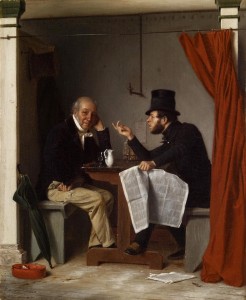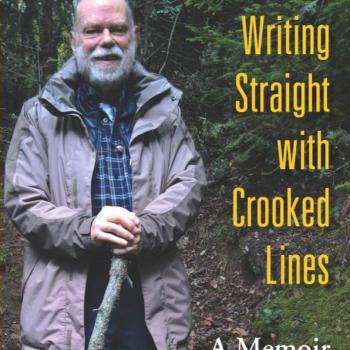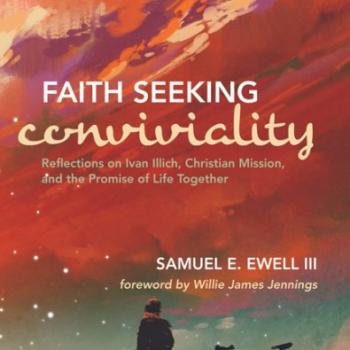 This started out as a post on the joy of receiving seed catalogues in deep winter, but didn’t get very far. Here’s the tl;dw version- If you don’t already have your seeds, go here, buy them immediately, and get going. It’s time already.
This started out as a post on the joy of receiving seed catalogues in deep winter, but didn’t get very far. Here’s the tl;dw version- If you don’t already have your seeds, go here, buy them immediately, and get going. It’s time already.
Now the thing that kept pulling me away is the other season we’ve all come to know and love: Primary Season, and it’s heating up too. While I find the American political process fascinating to watch unfold, and enjoy the season tremendously- the way that some folks might enjoy baseball- there is this problem that I’ve seen unfolding over the last twenty years, and it’s unsettling. It’s been a little like watching a train wreck in very slow motion, I knew something bad was coming down the tracks- but I could barely name it until maybe 10 or 12 years ago. There’s a lot of talk the last 40 years or so of collapse and dystopia, but I think finding a way through this shared malaise is our best hope of leading healthy political lives. We need to name this, and create solutions in the chaos.
I’ve come to think of this problem as twofold- shared meaning and a deeply abusive relationship. (I still don’t know what to call the problem.) The shared meaning part is easy. If I refer to something as a “fact”, and it is a fact, the person I’m speaking with will also hold it as fact, and we can move through our conversation with a shared frame of reference. We don’t even have to share first principles and we can talk about our differences. And if a fact is in dispute, we can check, a shared reference point, like an encyclopedia, or news source, or medical journal, etc. This is barely true any longer. There’s WikiPedia and ConservePedia; Fox News and MSNBC; National Review and The Nation. I recall a conversation with a relative several years ago, and quoting the New York Times- only to be told that the NYT could not be believed or trusted. Speaking across ideological divides means that we read, listen to, and accept different sources and cannot receive information from sources that are not ‘ritually pure’; anything from outside our familiar echo-chambers is untrustworthy at best, and false on principle. This is a problem. This means there is no debate but meta-debate and we never get to have a substantive conversation about the things that matter.
The second issue is a little harder to explain. First off, I want to be clear that I’m not using the metaphor of an abusive relationship lightly. I in no way want to make light of or suggest that abusive relationships are not serious problems- rather, I want to make clear and concrete the gravity of the problems we face, and the very real, honest fear that people are paralyzed by in our political process, and how desperately hard it is to even imagine something new. As best I can see, the vast majority of Americans are in an abusive relationship with their political party. I’m not naming a party, because this is endemic, it cuts across party lines. Folks are unable to get their basic needs from the relationship met, are not in any way respected, in fact openly abused and disparaged- and are unable to leave because they fear for their safety. Many people know this is the situation, justify it in a hundred small ways, and point to the smallest crumbs as proof that this relationship with their political party is better than nothing.
Together, these problems mean that most of us are suffering in the very same way- but have come to believe that our suffering, our sides’ suffering, is unique and isolated. This is however, not the case- the reality is that we are all bereft of political representation, and there is no vote that can be cast to change that. But we are locked in these relationships, and from inside them, believe fervently, that we can vote our way out of them. And if I hazard to challenge this belief- folks demand to know what to do instead. Or simply insist that I’m not sufficiently serious or somehow naïve.
The thing I always ask friends that are in actual abusive relationships, is “What would it take for you to leave? Harm to a child? Injuries requiring more care than bruises? What would it take?” Folks rarely respond directly, but again- want to know what I would have them do instead, or insist that I really don’t understand what I’m looking at. Perhaps I don’t, that’s always a possibility. But perhaps I’m right- and on the off chance that I am, I offer the singularly unhelpful advice of “…other than leaving, I have no idea what you should do.” And honestly, many, many people make the decision not to leave an abusive relationship, because they feel it is the safest thing they can do- and I can’t fault or belittle them for that. It is true, that leaving is the most dangerous moment. In fact, folks attempted to break off these political relationships in 1992 and again in 2000; only to have things backfire and retrench, leaving them even more fearful and dependent on their political relationships. But the way to leave any abusive relationship is to make a safety plan, find any support you can, and leave. Yet before any of that can happen- you and only you need to decide to leave.
So while I understand how very genuinely afraid folks are to leave these political relationships, and don’t blame them for staying- I think I have a responsibility to say that I want them to leave for their own health and safety, and I need to ask them, what has to happen for them to leave? What do they need to see or experience to realize that things are not working as they should? We should all know by now that doing the same thing over and over and expecting different results… Doesn’t get us anywhere useful. Mind you, I don’t particularly care who folks decide to vote for (remember, voting has little discernible effect on policy, so it’s largely beside the point) But rather, I want to know how they are going to engage politics outside of their party system, and that decision will probably change they way they vote. Perhaps folks can’t imagine anything that would make them leave, and just feel that there is no other way, and nothing else that can be done. In that case, I have to encourage people to engage media and conversation outside of their chosen echo-chambers. Seriously, this may be the most important thing you can do- isolation is the abuser’s best friend and doesn’t allow you to consider any reality outside the context of the relationship. So, these folks that seem “crazy” and hold political ideas and beliefs that you find absurd? Find out all about that, read what they are reading, and figure out why. But this brings me back to the first problem- we might have to hear things from ‘ritually impure’ sources to learn anything we don’t already think we know. We might have to take these sources at face value, and consider what they are saying and not who they are.
Now after all this talk about how voting doesn’t matter, and talking out-side our echo-chambers, and maybe just staying in these abusive political relationships- you might think I was suggesting that folks not bother to vote. I am not. While I have no illusion that voting has outside influence, I am quite confident that voting changes the voter. And that is the single element in everything that’s happening that has to change.












